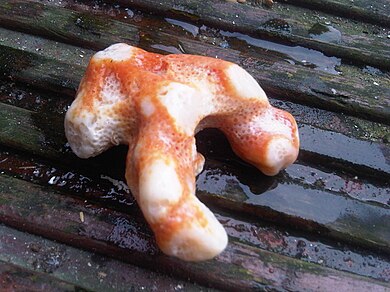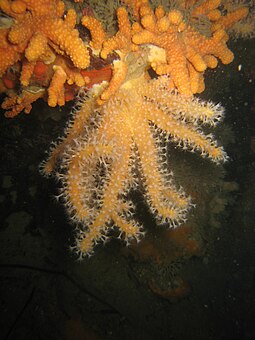|
Date & Time : 22, December 2024 22:27
Classification
Phylum - Cnidaria
Class - Anthozoa
Order - Alcyonacea
Genus - Alcyonium
Common Name
Dead man's fingers or Soft coral
Distribution
These are found mainly in temperate or cold seas, Atlantic Waters on the North American Coast, Indo-Pacific Ocean waters or even in polar seas.
Habitat
It is marine and sedentary in nature. The animal is found in the littoral zones and tidal zones in depths varying from 200m to approximately 3000m.
Identifying Features
- Body wall is diploblastic.
- Mesoglea has spicules throughout, thus providing strength to coenchyme.
- Body is divided into base, stalk and lobes which are huge and fleshy beacause of the presence of mesogleal coenenchyme.
- Body consists of polyps which resemble the shape of a star. These are known as anthocodia.
- Anthocodia are present only in the distal part.
- The distal end of each polyp has a central mouth surrounded by pinnate tentacles.
General Characteristics
- The polyps are elongated and yellow in colour.
- The anthocodia or polyps are buried on the coenchyme in such a way that only the oral ends of these polyps are visible.
- Stimulus pulls the anthocodia inside the gastrovascular cavity as a result of which the whole column of the polyp gets inverted.
- External fertilization takes place with a free swimming larval stage called Planula larva.
- Planula larva turns into sedentary being which forms a colony by budding.
 
Alcyonium digitatum
|